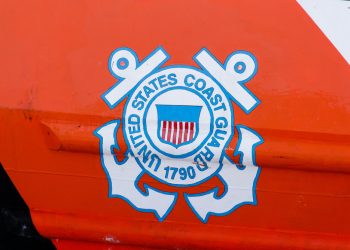USCG published a new Marine Safety Advisory to restate and reemphasize the importance of a properly administered and applied random chemical testing program to prevent drug misuse as a causative factor in marine casualties.
Marine employers, sponsoring organizations (ME/SO) and mariners subject to chemical testing are reminded of their responsibilities to ensure random chemical testing programs are both conducted in accordance with regulatory requirements and achieve their intended purpose of deterring, detecting and preventing drug abuse within the maritime industry.
The United States Maritime Transportation System supports the safety and security of our nation and promotes the quality of life enjoyed by the American people. Whether operating large cargo ships, passenger ferries of all sizes or small charter boats for pleasure, highly skilled American Merchant Mariners are required to be competent, highly-skilled and free of the debilitating effects of drugs and alcohol. To achieve this, Congress mandated the Coast Guard require chemical testing of mariners. Since 1989, the Coast Guard has enforced chemical testing of mariners per 46 CFR Part 16.
These chemical testing regulations serve as the foundation guiding the maritime industry and the Coast Guard to achieve the shared goal of preventing drug use as a factor in maritime casualties.
Of special importance in 46 CFR Part 16 is the requirement for random chemical testing programs. Persons serving aboard a commercial vessel as crewmembers or performing safety sensitive functions are required to be enrolled in a random chemical drug testing program. ME/SO are required to conduct random chemical tests in a manner that is scientifically valid, spread evenly throughout the year, and achieves the goal of unpredictability as to when a test may occur. ME/SO must conduct selection at least quarterly and must update the random selection pool prior to conducting the selection.
Each mariner subject to testing must have an equal chance for selection when a selection occurs. Selection for testing must be scientifically valid, using a paper or electronic random number generator. The drawing of names out of a hat for selection or other unapproved method is not authorized and its use will result in significant civil penalties upon the ME/SO. Once a selection is made, the ME/SO must plan mariner notification to account for mariner availability and test collection site readiness. Notification to the mariner must be done discreetly and in writing, with a means to document mariner acknowledgement of notification. Mariners are required to cooperate in the testing process and to proceed immediately to the testing location when instructed to do so by the ME/SO.
Failure of an ME/SO to conduct their random chemical testing program as described above, or failure of a mariner to cooperate in the process, undermines the integrity of the random chemical testing process. If the ME/SO or mariner is using the services of a Third Party Administrator or Consortium to assist in complying with the regulations, it is imperative the ME/SO or mariner closely follow existing agreements and notification processes to ensure the integrity of the random testing process and avoid invalidation of a testing event.
This is especially so for individual owner/operators who must exercise additional care to comply with the intent of the regulations.
Non-compliance by ME/SO or mariners may result in civil penalties of up to $7,500 per day, per violation. Mariner non-compliance also includes suspension or revocation of their mariner credential.
The Coast Guard strongly recommends marine employers, sponsoring organizations and mariners administer and conduct their random testing programs in compliance with regulatory requirements.
Source: USCG

































































